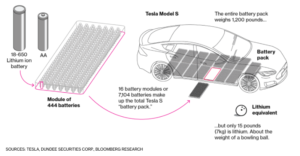Business & Money
The direct-to-consumer (D2C) model might be one of the most transformational things happening in retail right now. You no longer have to spend millions on TV commercials to make people aware of your products. You don’t have to own distribution or fight for shelf space in big box stores. Brands like Warby Parker and Dollar Shave Club have built massive businesses by cutting out the middleman and building direct relationships with their customers.
While this is all good and well (lower prices, better service, etc), I believe there’s another vertical that might benefit from the D2C model even more. Healthcare. The market is incredibly broken, and one reason is because you have this convoluted system where companies don’t care about people. And why should they? Companies don’t make any money from the end users of their products. Instead, they’re paid by insurance companies (often called payers). So the incentives are all screwed up. There might be a treatment option that is best for the consumer, but if it isn’t covered by payers, provider go with a different option.
So how do you effectively reach a D2C type model in healthcare? There are a lot of people searching for an answer, but one interesting example is a company called 23andMe. They’ve built a D2C genetic testing kit that circumvents all of the BS mentioned above. They mail you a testing kit, you spit in it, and mail it back. 8 weeks later you can log in to their app to review tons of different reports detailing what your DNA has revealed about you. But how do you really get people interested in personal genetic testing? The early trick was ancestry. People were really keen to find out where there were from or if they were likely to inherit that shiny bald spot on top of dad’s head. But I think this part was a marketing ploy. What 23andMe is really after is a massive database of genetic data. A couple coincidences for you:
Anne Wojcicki, 23andMe’s CEO and a co-founder, is the sister of Susan Wojcicki (CEO of YouTube and a former Google exec) and the ex-wife of Google co-founder Sergey Brin.
Brin and Google lead 23andMe’s series A investment round of $3.9 million (they’ve since raised an additional $483 million and I imagine Google has followed on to retain its ownership stake).
I wouldn’t be at all surprised if Google acquires the company in the not too distant future. And it would make perfect sense. The world’s leading search company acquires a company that has built the largest database of perfectly organized and searchable personal genomics data. Sounds like a match made in heaven.
Human Progress
I’m reading an incredible book called The Sovereign Individual. It’s all about massive and foundational changes to the trajectory of human development. One such moment it mentions is the fall of the Roman empire. The book describes how in modern times, with the benefit of 20/20 hindsight, most historians easily classify the capture of the Roman emperor Romulus Augustulus as the defining moment signifying the collapse of the empire. But at that moment, most Roman citizens and many of the surrounding peoples didn’t realize the significance of this event. Even Charlemagne, who sat on the Roman throne some 3 or 400 years later may have been under some false pretense that the crown was still intact. It wasn’t until much later when people began to realize that Rome was no more.
I point this out because it would seem that this is always the case for the ruling group at any point in time. Specifically, I am thinking about right NOW, our present moment in history. The US has the largest economy on the planet. Many of the leading companies in the world hail from our shores. We purportedly hold military supremacy over all other nations. You could point to many data points that say we’re on top.
But things are also getting pretty strange. We’ve elected Donald Trump to the highest office in the land. Perspectives among our population are becoming ever more polarized. The US dollar is faltering (not to mention what crypto might mean for reserve currencies and the financial system more broadly). All this to say that you could look at a different set of data points that say we’re standing on shaky ground.
Is this the moment when the 💩 hits the fan? Is this the moment when the US goes into secular decline? Of course, there is no way for us living in the moment to really know the answer. But there is the possibility that historians will look back on this moment as the moment that the US got knocked out of the top spot.
It’s an interesting idea and one worth spending some more time with.
Philosophy
A couple weeks ago my fiance wasn’t feeling well and wanted some tea. We went to the local corner store to see what types of tea we might find. They had chamomile, ginger, black tea, herbal tea, green tea, and a bunch of other teas. She stood in the tea section for what felt like forever trying to make a decision (she always takes forever in any store, even when we’ve already established that we are there for one specific thing). After walking around aimlessly perusing random aisles, I finally joined her in the tea section to see if I could speed up the process. It turns out that, because she’s rather tiny, she missed an entire section with a bunch of other interesting tea flavors that were perched on a higher shelf. I pulled a bunch down and to my delight, I was holding one that she was looking for. We made the purchase and were on our way.
On the walk home, I found myself ruminating about the tea experience further. I was thinking about the fact that what happened in that Duane Reade tea isle actually happens all the time in life. One person with a specific perspective and vantage point will see a situation completely differently than another person. It happened to be a physical difference in height in this scenario, but more commonly it is differences in perspective that stem from our various sets of experience, differing value systems, and all of the other things that lead to human subjectivity.
I believe it to be invaluable to surround yourself with people in this life whom you really respect and admire, but are from completely different walks of life. It’s the only way that you’ll see those really interesting tea flavors on the top shelf. ☕
My Latest Discovery
I’ve been talking about stop losses a fair amount here on VIC of late. It’s recently come to my attention that you can’t use stop losses for many OTC stocks. I’m bullish on Chinese internet companies, especially Tencent (maker of WeChat), so this limitation is a problem for me.
Just wanted to make you guys aware of this in case you were planning to invest in any OTC securities. For now, my approach is to simply use price alerts to make sure I’m aware of any big price movements. But all ears if you guys have other ideas.




